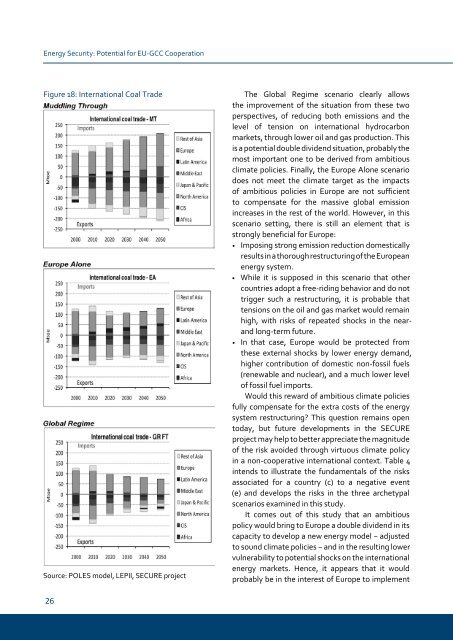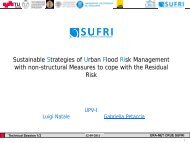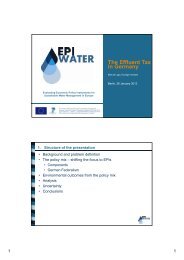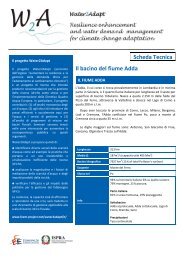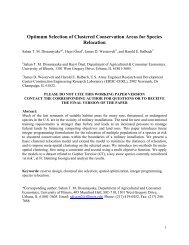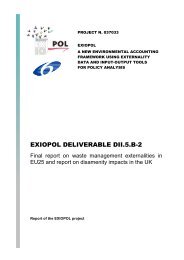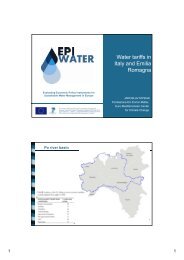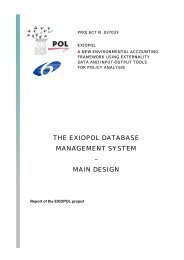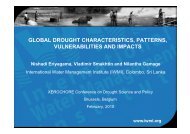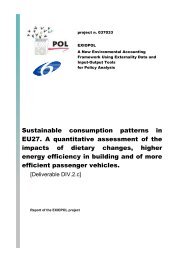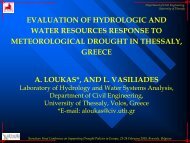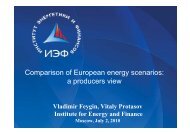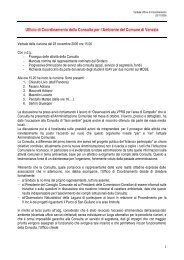Gulf and European Energy Supply Security - Feem-project.net
Gulf and European Energy Supply Security - Feem-project.net
Gulf and European Energy Supply Security - Feem-project.net
Create successful ePaper yourself
Turn your PDF publications into a flip-book with our unique Google optimized e-Paper software.
<strong>Energy</strong> <strong>Security</strong>: Potential for EU-GCC Cooperation<br />
Figure 18: International Coal Trade<br />
Source: POLES model, LEPII, SECURE <strong>project</strong><br />
2<br />
The Global Regime scenario clearly allows<br />
the improvement of the situation from these two<br />
perspectives, of reducing both emissions <strong>and</strong> the<br />
level of tension on international hydrocarbon<br />
markets, through lower oil <strong>and</strong> gas production. This<br />
is a potential double dividend situation, probably the<br />
most important one to be derived from ambitious<br />
climate policies. Finally, the Europe Alone scenario<br />
does not meet the climate target as the impacts<br />
of ambitious policies in Europe are not sufficient<br />
to compensate for the massive global emission<br />
increases in the rest of the world. However, in this<br />
scenario setting, there is still an element that is<br />
strongly beneficial for Europe:<br />
• Imposing strong emission reduction domestically<br />
results in a thorough restructuring of the <strong>European</strong><br />
energy system.<br />
• While it is supposed in this scenario that other<br />
countries adopt a free-riding behavior <strong>and</strong> do not<br />
trigger such a restructuring, it is probable that<br />
tensions on the oil <strong>and</strong> gas market would remain<br />
high, with risks of repeated shocks in the near<strong>and</strong><br />
long-term future.<br />
• In that case, Europe would be protected from<br />
these external shocks by lower energy dem<strong>and</strong>,<br />
higher contribution of domestic non-fossil fuels<br />
(renewable <strong>and</strong> nuclear), <strong>and</strong> a much lower level<br />
of fossil fuel imports.<br />
Would this reward of ambitious climate policies<br />
fully compensate for the extra costs of the energy<br />
system restructuring? This question remains open<br />
today, but future developments in the SECURE<br />
<strong>project</strong> may help to better appreciate the magnitude<br />
of the risk avoided through virtuous climate policy<br />
in a non-cooperative international context. Table 4<br />
intends to illustrate the fundamentals of the risks<br />
associated for a country (c) to a negative event<br />
(e) <strong>and</strong> develops the risks in the three archetypal<br />
scenarios examined in this study.<br />
It comes out of this study that an ambitious<br />
policy would bring to Europe a double dividend in its<br />
capacity to develop a new energy model − adjusted<br />
to sound climate policies − <strong>and</strong> in the resulting lower<br />
vulnerability to potential shocks on the international<br />
energy markets. Hence, it appears that it would<br />
probably be in the interest of Europe to implement


